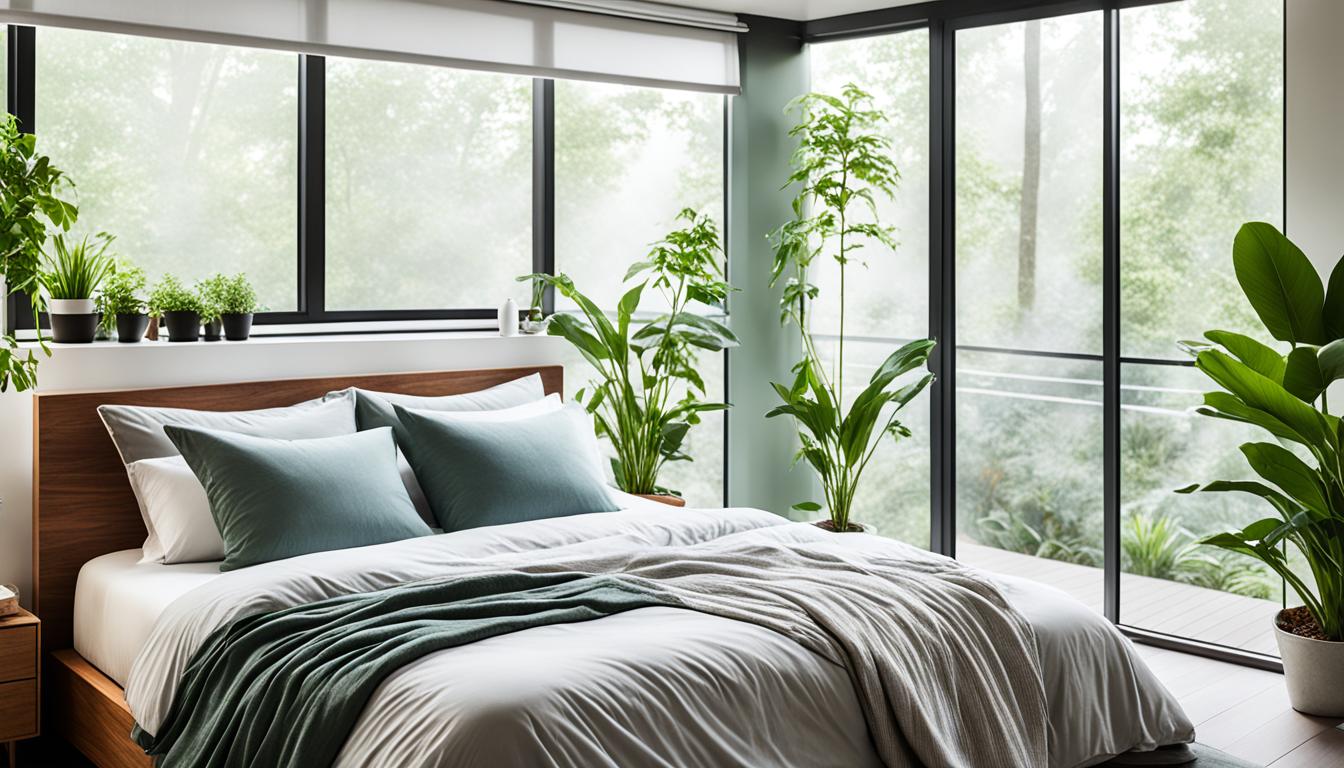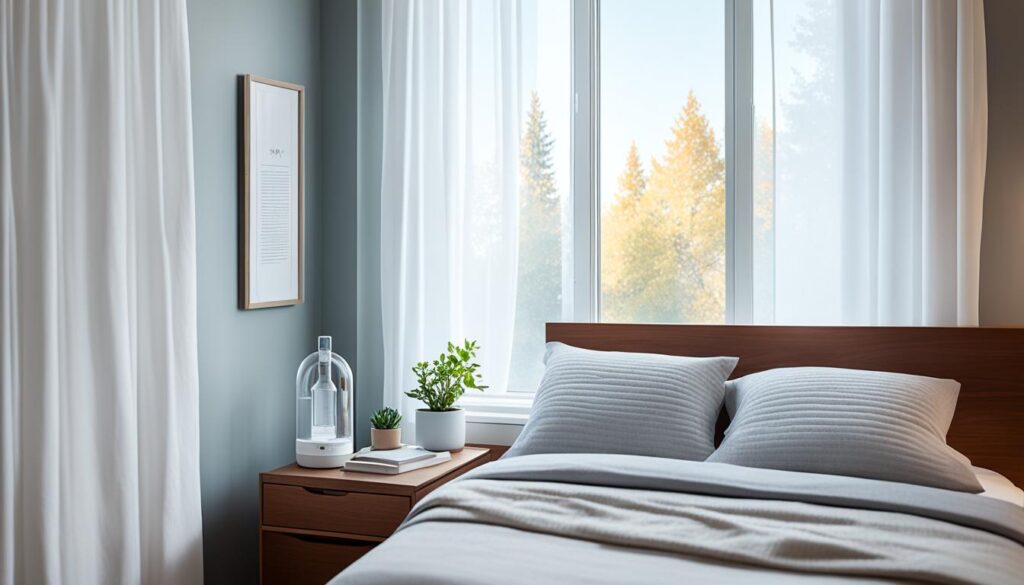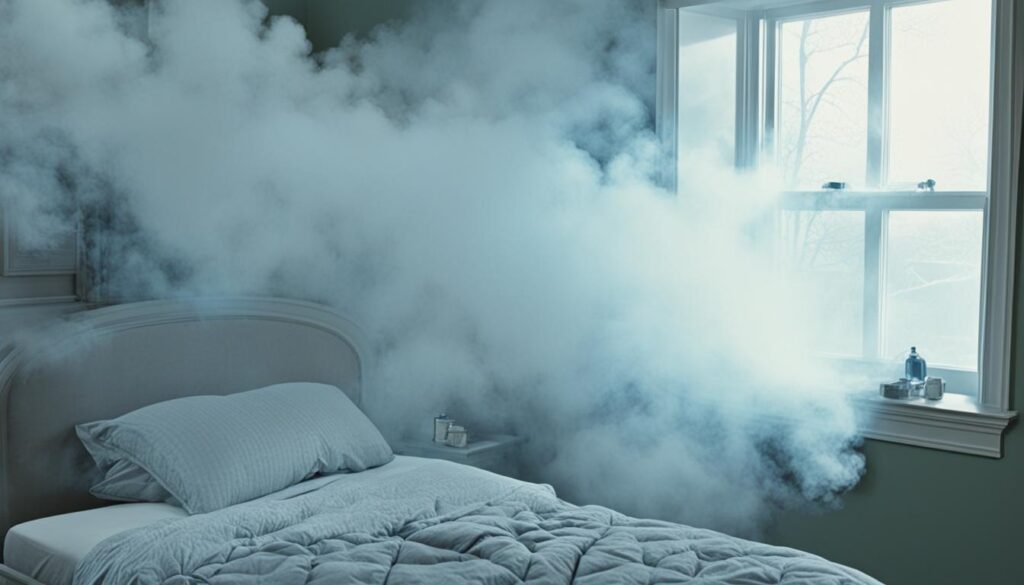
Safe to Sleep in a Smoke-Affected House?
In the aftermath of a fire or smoke incident, one may be wondering whether it is safe to sleep in a house that has been exposed to smoke. The health risks associated with sleeping in such an environment are a valid concern for anyone. In this article, we will examine the precautions you can take and the potential health risks involved in order to ensure your safety and well-being.
Key Takeaways:
- Proper precautions should be taken before sleeping in a smoke-affected house.
- Ensure proper ventilation and clean-up to minimize health risks.
- Seek professional assistance for smoke remediation if necessary.
- Breathing in smoke particles can have adverse effects on respiratory health.
- Long-term health concerns may arise from prolonged exposure to smoke-filled environments.
Precautions for Sleeping in a Smoke-Affected House
When it comes to sleeping in a house that has been affected by smoke, taking proper precautions is essential to ensure your safety and well-being. Addressing the potential hazards and lingering smoke particles is crucial in creating a safe sleeping environment. By following these post-smoke sleeping precautions, you can rest easy knowing you’ve taken the necessary steps to protect yourself.
Proper Ventilation
One of the first steps to ensure house safety after smoke is to promote proper ventilation. Open all windows and doors to allow fresh air to circulate throughout the space. This helps in removing any residual smoke particles and odors. If the outdoor air quality is good, consider using fans or air purifiers to enhance air circulation.
Cleaning Procedures
To rid your home of smoke particles, thorough cleaning is crucial. Start by vacuuming upholstered furniture, carpets, and curtains using a vacuum cleaner equipped with a HEPA filter to trap fine particles. Wipe down hard surfaces such as countertops, tables, and floors using a mixture of mild detergent and water. Don’t forget to clean your bedding, including sheets, pillowcases, and blankets, to ensure a fresh sleeping environment.
It’s important to note that certain items such as mattresses, pillows, and cushions may need specialized cleaning or replacement, as smoke particles can permeate deeply into these materials. Consult with professional cleaners or manufacturers for specific guidance on treating smoke-damaged items.
Seeking Professional Assistance
In some cases, the extent of smoke contamination may require professional assistance for proper smoke remediation. If you notice persistent smoke odors or are unsure about the level of contamination in your home, it’s advisable to contact experts in smoke damage restoration. They have the knowledge, equipment, and expertise to assess the situation, perform thorough cleaning, and ensure the removal of hazardous particles.
Remember, while these precautions significantly reduce the risks associated with sleeping in a smoke-affected house, they are not a guarantee of complete safety. If you or anyone in your household experiences respiratory difficulties or any other health issues after smoke exposure, seek medical attention immediately.

By following these post-smoke sleeping precautions, you can create a clean and safe sleeping environment in a smoke-affected house. Remember to prioritize your health and well-being by implementing proper ventilation, thorough cleaning procedures, and seeking professional assistance when needed.
| Precautions for Sleeping in a Smoke-Affected House |
|---|
| Promote proper ventilation by opening windows and doors |
| Utilize fans or air purifiers to enhance air circulation |
| Vacuum upholstered furniture, carpets, and curtains with HEPA filter-equipped vacuum cleaner |
| Wipe down hard surfaces using mild detergent and water |
| Consult professionals for specialized cleaning or replacement of smoke-damaged items |
| Seek professional assistance for thorough smoke remediation |
Health Risks of Sleeping in a Smoke-Affected House
When it comes to sleeping in a house that has been exposed to smoke, there are important health risks to consider. Breathing in smoke particles can have detrimental effects on your respiratory system and overall well-being. It is crucial to understand these risks and take appropriate measures to protect yourself.
Exposure to smoke-filled areas can lead to various health issues, both immediate and long-term. The inhalation of smoke particles can irritate the airways, causing coughing, wheezing, and chest tightness. Those with pre-existing respiratory conditions, such as asthma or chronic obstructive pulmonary disease (COPD), may experience worsening symptoms and increased difficulty breathing.
Furthermore, sleeping in a smoke-affected house can expose you to harmful chemicals and toxins that linger in the air. These pollutants can have adverse effects on your respiratory and cardiovascular systems, increasing the risk of respiratory infections, heart problems, and even lung cancer over time.
Immediate Risks:
– Irritation of the respiratory system: Breathing in smoke-filled air can cause immediate irritation, leading to coughing, wheezing, and shortness of breath.
– Exacerbation of existing respiratory conditions: Individuals with asthma, COPD, or other chronic lung diseases are at a higher risk of experiencing exacerbated symptoms when exposed to smoke.
– Eye and throat irritation: Smoke exposure can cause irritation, redness, and itching of the eyes, as well as sore throat and hoarseness.
Long-Term Risks:
– Respiratory infections: Prolonged exposure to smoke particles can weaken the immune system and make you more susceptible to respiratory infections, such as bronchitis and pneumonia.
– Increased risk of cardiovascular problems: The toxins present in smoke can enter the bloodstream and contribute to the development of cardiovascular diseases, including heart attacks and strokes.
– Respiratory and lung diseases: Regular exposure to smoke can lead to chronic respiratory conditions, such as chronic bronchitis, emphysema, and even lung cancer.
Considering these health risks, it is essential to prioritize your safety and well-being when sleeping in a smoke-affected house. If you experience any symptoms related to smoke exposure, such as persistent coughing, difficulty breathing, or chest pain, it is crucial to seek medical advice promptly.

Conclusion
To ensure your safety and well-being, it is crucial to take necessary precautions and address any potential health risks when sleeping in a house that has been exposed to smoke. These precautious steps are essential in creating a safe environment for a good night’s sleep.
By following the recommended safety measures, including proper ventilation and thorough cleaning procedures, you can minimize the presence of smoke particles and other hazards. Seeking professional assistance for smoke remediation is also highly recommended to ensure that all necessary steps are taken to restore the safety of your home.
Remember, your health and well-being should be prioritized. Breathing in smoke particles can have detrimental effects on your respiratory system and pose long-term health concerns. If you experience any symptoms related to smoke exposure, it is vital to seek medical advice. Do not hesitate to consult a healthcare professional who can provide guidance and appropriate treatment if needed.
In conclusion, by being proactive and following the necessary precautions, you can create a safe sleeping environment even after smoke exposure. Take care of your health, seek professional assistance, and prioritize your well-being in dealing with the aftermath of smoke in your home.




